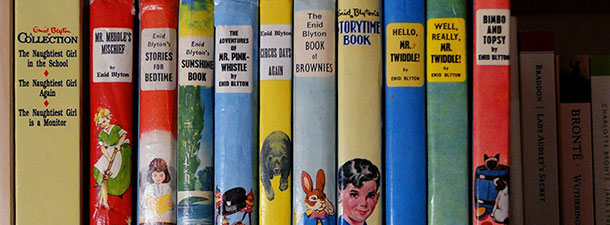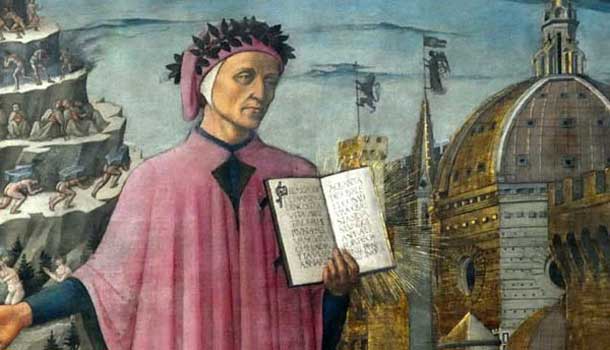
Mission statement by the editors
May 27, 2012
The Feeling of Being German
May 31, 2012When the tide of war washes over a country, the world’s attention focuses on the drama of battle, the sweep of geopolitical manoeuvres, the showy posturing of politicians who claim to seek peace. But the real, long-term impact of war can be found in the wounded minds and hearts of the children left in its wake. If we truly seek peace, we would do well to turn our attention to them. In them we may have created the wars to come.
C
CAIRO—It is early morning in Egypt’s capital and the sun is only beginning to peek over the satellite dishes strewn across the rooftops of the massive urban sprawl that is Cairo. The cries from the adjacent room are biting. Mahmoud Gaber moves to the door, props his head to one side and listens. Inside, the cries of a young boy are heard, the unmistakeable whimpering of a 7-year-old boy.
“This happens almost everyday,” Gaber confides, pouring tea into our cups as he points to two framed pictures hanging on the wall. “That is Ahmed in the other room, and that is Mahmoud, my first son.”
His looks at the ground. Words do not come. He waits, wiping a few tears that have formed. He has the eyes of a man who does not sleep much. Mahmoud continues slowly, telling of the day his son Mahmoud was shot and killed by Egyptian police.
“He was out on the street, going to get food,” Mahmoud continues, recounting that horrific day, January 31, 2011. It was at the height of the Egyptian uprising that eventually ousted former President Hosni Mubarak. “We were all watching him from the balcony,” Mahmoud says, motioning me over to the small balcony which is barely large enough for two people to stand on.
“Ahmed was watching that day and I came just as I heard the gun shots. When I got to the balcony, Ahmed was shaking. When I looked down to the street below, I saw Mahmoud on the ground. He was bleeding. I ran to him, but it was too late. He was dead. Shot by Mubarak,” he ends angrily.
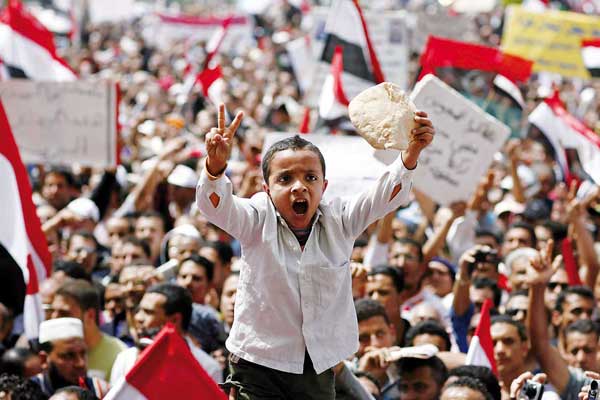
As he is explaining that fateful day, young Ahmed emerges from his room, asking for something to drink. He moves slowly to the one bathroom down the small hall, still lined with images of Mahmoud.
“Ahmed struggles with the violence he saw during the uprising and seeing his brother shot and killed right in front of him. I have taken him to a doctor, but it is too expensive for us to have the treatment, so we watch over him daily and hope he will get better,” the father says.
Ahmed returns to the room, turns on the small television set and watches the Arabic cartoons that are part of his daily routine before school. He is a small boy, but otherwise outwardly normal. He jokes about Spongebob Squarepants and laughs at a few of the jokes. His father says this is a good day, better than yesterday.
“He just cried and tried to hit me and his mother over and over, demanding that Mahmoud come and play with him. It is sad to watch, but I know a few other families going through similar experiences. We don’t know what to do,” Mahmoud adds.
In Egypt, where approximately 1,000 people were killed in the 18 days of uprising in January and February 2011, the psychological effects of murders carried out by the Egyptian police are still present, their wounds still open and affecting many people on a daily basis.
Unfortunately, there is little the Gaber family and others are able to do to assist their loved ones through the troubling aftermath of dealing with a family member’s death. The current government has allocated funds for families of those who were killed during the uprising, but as Mahmoud says, “it’s barely enough to survive on a daily basis. And then there is Ahmed; what are we supposed to do with him? He needs help.”
Going to therapy in Egypt is a tricky endeavour. Social norms still posit that seeing a therapist is akin to telling the world you have a problem, much as it was in the United States decades ago. For Egyptians, the stigma surrounding psychiatry remains strong, and many families stay away out of a sense of honour.
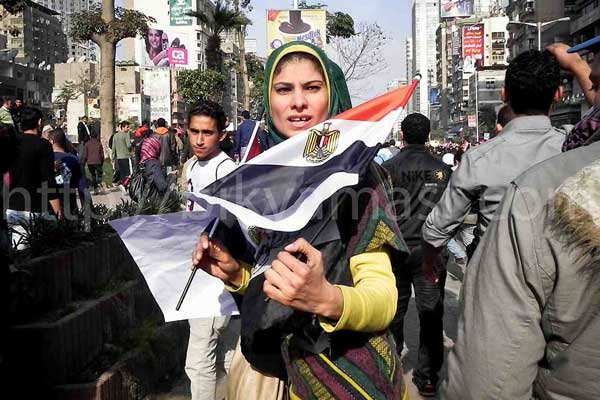
Noha Bassiouny is a Cairo-based psychologist. She sees patients on a daily basis for a full range of ailments, “but most of them are simply depressed,” she says. A middle-aged woman who graduated from UCLA and has been working in the field for over two decades, Bassiouny feels the uprising and subsequent violence has left a scar on Egyptian and Arab societies as a whole. There need to be outlets for families to grieve and move past what they witnessed and what they experienced, she argues.
“Look at all the children in this country, in Tunisia and Libya and elsewhere. I wonder what is going to happen to them and how are they going to deal with the trauma that they witnessed and what they are feeling?” she asks, putting her cup of coffee on the table and moving to the window, pointing down at the street below.
There, on Mohamed Mahmoud Street in central Cairo, a massive white stone wall remains erected in the middle of the road, forcing both vehicles and pedestrians to find alternative routes. Bassiouny sees the walls being built by the military as a symbol of the barriers facing Egyptians.
“We always want things to be stable, but the way Egyptians and Arabs for so long have dealt with these matters in the mind is to put up barriers and create a way of thinking that avoids dealing with the problems. This causes an inability to function and understand that the problems we have are normal,” she continues. “Children like Ahmed need to be able to come to a doctor and talk about what is happening in their mind and what they are thinking. If they don’t, it will be a struggle that will affect everyone around them and continue to create problems for the children and the families.”
She is optimistic that change can happen, but it will take more effort by Egyptians and those in other conflict-affected areas to overcome the stigma of seeking therapy and admitting they are not well. “If they can do this, I see a bright future going forward for the Arab world.”
It is not just Egypt that struggles with conflict-related trauma. In Tunisia, Gaza, Lebanon and elsewhere, families struggle to understand what has happened and deal with these issues.
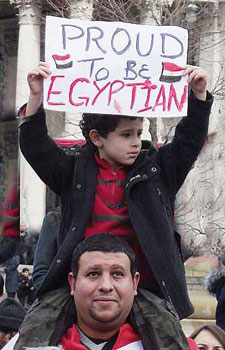
Lebanon 2006
With nothing left of his home, Wael looks on without as much as a glance at his neighbours passing by. It is late August 2006 in the city of Tyre in southern Lebanon, where an Israeli bombing campaign has left more than one thousand dead and tens of thousands of others homeless. The 10-year-old boy’s home has been destroyed in one of Israel’s many attacks, but at first glance the boy seems unfazed. Wael gets up and walks over to where a group of men are standing, arguing. Their faces wrinkle with frustration and deep anger at the devastating effects of war.
“I want to grow up and be a resistance fighter in Hezbollah and kill Jews and Americans,” the little boy tells them. Wael is angry, scared and determined to have his revenge.
Fast forward three years. Wael’s tone has quietened somewhat, but the images of war and death continue to rack his mind.
“I see my friends and family all the time. The image of their bodies lying dead on the ground is still with me and I don’t know what to do,” he admitted in a phone conversation.
Wael’s story is one that can be taken to Gaza, to Afghanistan and across the war-torn regions of the world. Children are suffering.
“Children are the first victims in any conflict and this was no different here in Lebanon,” said Dr. Ali Eid, a child psychologist in Beirut who worked extensively with children in the south during and after the war.
Eid believes that it is through children that the true impact of war is understood. He argues that because in Lebanon there has been a huge surge of support for Hezbollah among children who had their homes bombed, the prospects of another war have not been erased, even three years later.
“When children become the victims, their entire world is thrown aside. They don’t know how to deal with who they are. No longer can they simply go and play. Where is there to play when their homes are gone and their friends are dead?” Eid continues.
During the 34-day war between Hezbollah and Israel, over 1,000 Lebanese civilians were killed. According to the United Nations and human rights groups in the country, the majority of those killed were women and children. Almost one million Lebanese were displaced by the Israeli bombings.
Dan Halutz, Lieutenant General and Chief of Staff in charge of the Israeli attack on Lebanon said at the time that the “war would turn back the clock on Lebanon 20 years.”
In a sense Israel has achieved this goal. Over 500 children were killed in the course of the war, leaving part of a generation dead. Among the Shiite populations in Lebanon, especially in the south, it is difficult to find anyone who doesn’t know someone who was killed or wounded by the war.
“These kids will grow up believing that Israel is the enemy and that the Jewish state must be destroyed. They will look around and ask, ‘Where is my friend I used to play with?’ and they will realise that their friends are dead,” Eid added.
As thousands returned to their homes – or what was left of them – in the autumn of 2006, children turned to their parents and asked where their homes had gone.
“I want to tell my boy the truth, but I fear that he will grow up to hate Israelis and that is not right,” Rawwad Youssif said in Sidon as he was taking his family back to their village near Tyre.
Today, Lebanon is fraught with uncertainty and upheaval. Reconstruction continues and both Hezbollah and the government have promised over and over that economic assistance will be readily available to those who need it. But what Youssif and others believe is truly needed is the healing of the younger generation.
“I think it is time we sat down with our children and talked to them about the importance of peace,” Youssif said.
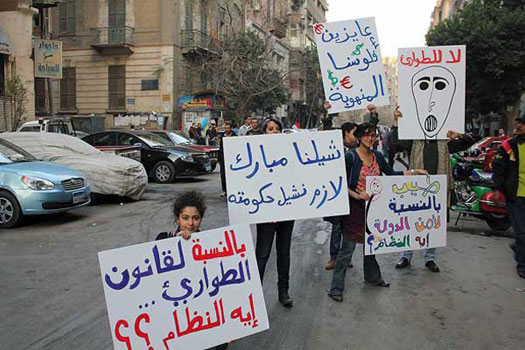
Peace is a tough question in a country starkly divided by beliefs.
“I always tell people that here in Beirut people put on a face. When they speak, they tell people what they want to hear, not what really is on their mind,” said Nazir Ghanem, Project Officer at the Forum for Development.
Culture and Dialogue.
“But in the privacy of their homes, they talk to their families about how much they don’t like this group or that group in the country,” he continued.
Lebanon has witnessed a war almost every five years since 1975, leaving much of the population in constant state of fear. The lack of trust that exists between one group and another resonates within a child’s psyche, Eid points out. He believes that all the wars Lebanon has experienced have led to a culture of violence and hate.
“We need to re-educate our children so they don’t keep thinking of the images of war and death. We need to grow into a country that puts life first,” he continued. “If we don’t do this our future generations will join resistance groups and continue to fight Israel, America, and ourselves.”
This will surely prove a difficult task. Wael, the young boy who saw his house destroyed by an Israeli bomb, goes to sleep every night with those images of death fresh in his mind.
“I wake up and I run to my mummy and I don’t know why I keep seeing my friends. They are all dead,” he says. “I just want to go out and play.”
“If children aren’t able to play and live in happiness, it is difficult to see a future free of violence and destruction,” Eid fears.
“We are a Mediterranean country and that means that we love our families and cherish those around us,” says Ghanem. “But if our children are constantly in a state of fear of going out, or even being at home, they will grow up with the fear that leads to violence and hate.”
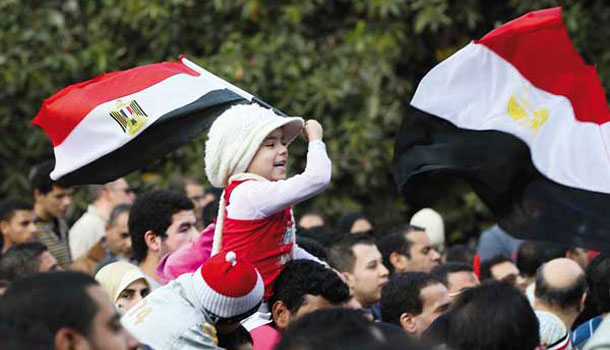
Healing the Youth
Other parts of the region – Gaza, Iraq, Afghanistan – have been hit hard by violence. And the effects on the children are evident at every turn. Columbia Professor Michael Wessels has been working in countries struggling to cope with the aftermath of violence. He believes there is much that can be achieved for the better.
Wessels, who has worked in a number of post-war societies, including Gaza and Afghanistan, says that identifying those in need is the most important first step toward implementing a strategy to help children cope with what they have witnessed.
“Not all children need therapy, and in many contexts, Western style therapy is very inappropriate. Particularly unhelpful is individual psychotherapy,” he says.
“Most conflicts occur in collectivist societies where people place the good of the group above that of themselves. To do individual therapy or other helping stigmatises them and makes their situation worse.”
He says that a lot of outside observers tend to believe that the major sources of distress are the attacks and death witnessed. “Yet, when you actually talk with children, they say their biggest issues are insecurity, lack of education, overcrowding (particularly in refugee camps), not having a job, etc. Social interventions are needed to address these.”
As a psychologist on the ground, Wessels says that throughout his work, he has noticed that all societies and cultures have “indigenous supports that may be more appropriate, effective, and sustainable than outsider therapies.”
He points to Angola, a country teeming with former child soldiers. “Formerly recruited children said they needed to be treated by a local healer who could ritually cleanse them of their impurity,” he says. Wessel points out that these methods may appear odd in the face of traditional Western psychotherapy. “But such rituals are often very important for regaining social acceptance in rural areas of sub-Saharan Africa.”
Violence creates more violent societies
One of the detrimental changes in societies struggling to cope with a violent past is how it tends to create a present culture of violence. Wessels, who has seen this first hand, says that if too little attention is given to supporting “war-affected young people, there is a danger they will turn to violence and crime to meet their basic needs.”
Recent United Nations reports indicate that children who are not given proper treatment will more than likely grow up to perpetuate violent patterns themselves. One UNICEF official, who asked to remain anonymous due to the security restrictions at his current location, said that he has seen this, first hand, in Kashmir, Gaza, Sudan, Afghanistan and other war-torn regions.
“If these people do not receive proper attention, often professional help, they grow up to think violence is okay, or at least a means to solve problems,” he said. “So it is important to look at what can be done.”
Wessels agrees, arguing that support must range from “family tracing and reintegration, family mediation, adult mentoring, catch-up education, vocational training, income generation, spiritual cleansing where appropriate, child protection and youth peace building.”
One of the difficulties of addressing much of this is the narrow approach by a number of Western psychologists, who believe their methods are suitable for non-Western traditions.
“Counselling or other Western approaches may be needed, but only for a small percentage. As I said, indigenous approaches may be more appropriate,” Wessels continues.
A generation haunted by violence
In Al Arish, Egypt, some 30 minutes from the Gaza border, children are quick to turn their heads at the sound of a loud bang. That’s thanks to Egypt’s close proximity to Israel’s bombing campaign aimed at Hamas in December 2008 and January 2009. Bombs landed inside the Egyptian border, targeting the growing number of smugglers’ tunnels linking Egypt to Gaza.
Ahmed, an 8-year-old boy remembers the first night. The bombings grew so loud he had to put his head under three pillows.
“I heard a crashing sound. It felt like somebody was shaking our house. When I looked out I heard the big boom when the bomb hit the ground. I was so scared,” he recounts. “Now, when I hear something on the street, or in the air, I get scared even more because I don’t want it to happen again.”
The boy understands the reason for his fear, but still feels he has no control over whether the bombs will start again. “I don’t know what to do. My mum and dad tell me it’s okay, we are safe, but I don’t believe them. Not after what happened. I had to hide under my blankets and pillows to get away.”
A number of local non-governmental organizations in Egypt are helping to address the psychological impact of the recent war in Gaza on children like Ahmed. He says the doctors are helping him understand his fear and insecurity, but as with children from Afghanistan to Angola, the violence continues to haunt him, even if the war has ended.
“I just want to go play and have fun with my friends. I like football so it is hard to play when I hear those noises. But I know I can get better,” he adds.
Time will tell if the healing powers of the youth in the world will manifest themselves, or if the violence brought on by siege and war will forever determine their future.
Ahmed’s father, Mohamed, believes in peace and what he calls the “goodness of people.” He wants the international community to address these issues “before more children, in much worse situations than my boy, are forced to be put through this kind of violence.
“I already see him getting angrier more often. He yells and pushes more than before the war and the bombings. We are all very worried about him and about our brothers and sisters in Gaza.”
A new generation of trauma
Back in Cairo, one year on from revolution, the struggle for the Gaber family continues. Young Ahmed has good days and bad days, but the sound of tear gas and gun shots, common in the country this past autumn and winter, leave the child squirming. His father, Mahmoud, says that Egypt must move to a new future, have a new revolution. “Young kids like Ahmed have been through enough, but little has changed.”
He says Ahmed has been given some money by a wealthy family friend to attend a new grassroots initiative started by community members to help the younger generation cope with the stress of what they have witnessed.
“I just hope it is enough to deal with what he has felt. I know we all face struggles over the violence, so we’ll see in the near future what comes of this country,” he adds.




